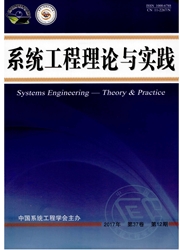

 中文摘要:
中文摘要:
在全球价值链迅速发展和人民币汇率改革不断推进的背景下,研究汇率波动对出口中国内增加值的影响具有重要的现实意义.本文首先利用计量经济模型估计汇率波动对出口和部门进口的影响,进而利用反映加工贸易的非竞争型投入产出模型测算出口中国内增加值所受的影响.结果表明,汇率波动对出口增加值的影响比对出口额的影响更大,除了影响出口中的直接增加值之外,汇率波动还会影响进口品和国内品之间的替代,进而影响国内品中间投入结构和出口中的间接增加值.分贸易方式来看,汇率波动对一般贸易出口的影响更大,加工贸易在有限程度上缓和了汇率波动对总出口增加值的影响.对部门出口增加值而言,进口需求价格弹性较大的部门所受影响较大,加工出口比重高的部门所受影响较小.
 英文摘要:
英文摘要:
This paper aims to study how much exchange rate volatility affect China's value-added in exports from the perspective of global value chains. Econometric models are established to estimate the influence of RMB volatility on exports and imports demand. By combining these econometric models with non-competitive input-output model capturing processing trade, this paper further measure the impact of RMB volatility on China's value-added in exports. The results show that RMB volatility not only affect the direct value-added in exports, but also affect the indirect value-added in exports because it affects the substitution of imports for domestic products. Additionally, the results reveal that processing trade mitigate tile influence of RMB volatility on value-added in exports. As for the sectors, sectors with higher share of processing trade are less affected. On the contrary, sectors which have higher import price elasticities tend to be more strongly affected.
 同期刊论文项目
同期刊论文项目
 同项目期刊论文
同项目期刊论文
 期刊信息
期刊信息
